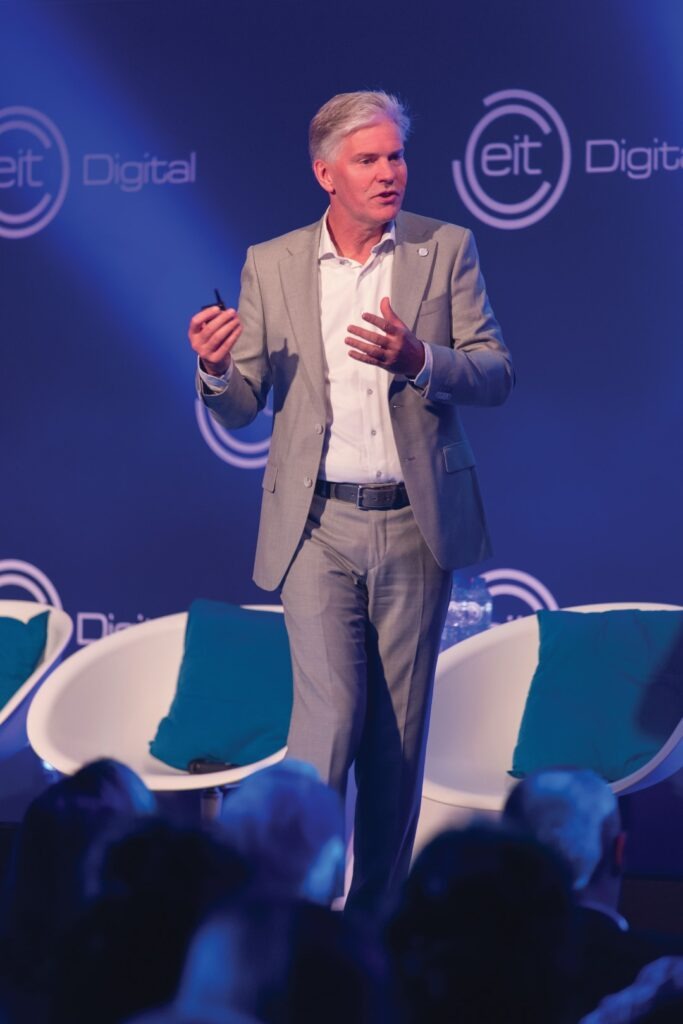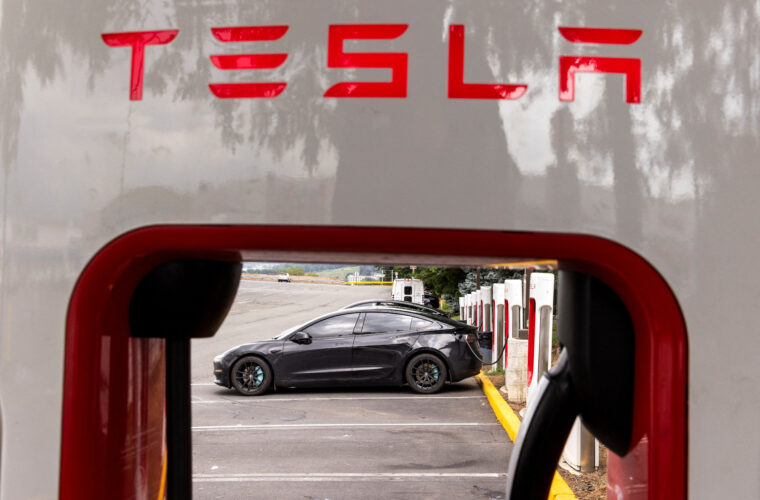What changes in Europe with the new regulation that takes us directly into the new digital era
Willem Jonker is the EIT Digital Chief Executive Officer. EIT Digital aims to help business and entrepreneurs to be at the frontier of digital innovation by providing them with technology, talent, and growth support. Its way of working embodies the future of innovation through a pan-European ecosystem of over 200 top European corporations, SMEs, startups, universities and research institutes, where students, researchers, engineers, business developers and entrepreneurs collaborate in an open innovation setting. This ecosystem is located in Amsterdam, Berlin, Braga, Budapest, Brussels, Eindhoven, Edinburgh, Helsinki, London, Madrid, Milano, Munich, Nice, Paris, Rennes, Stockholm, Trento, and San Francisco. When it comes to regulation Jonker has a lot to say, given that the governing body is a European flagship for the promotion of digital innovation, linked to the European Institute for Innovation and Technology.
“The DSA is currently a proposal from the Commission so let’s be very clear that the regulation still has to be agreed. What it will do is try to improve the rights of citizens when it comes to digital services. So, citizens will be better protected when they are active online, whether purchasing goods or services in the digital world” he said.
“The European regulatory framework for digital is the next step the journey to foster innovation and competitiveness of the European online environment. Although it is mandatory to create an equal playing field, this needs to be complemented by strengthening the environment that facilitates the creation of European digital world players within it”.
How can regulation and innovation find integration in an optimized European model?
“Innovation is often about challenging and disrupting the status quo, including existing business models as well as existing regulation. Regulation alone is not enough to strengthen the Single Market for digital services and foster innovation and competitiveness in the European online environment”.
“However, regulation should be carefully constructed to stimulate innovation by focusing on the transition towards the objective, rather than regulating the current state. Obviously, this requires a thorough understanding of what the objective is. In the case of strengthening digital Europe, this brings us to the creation of world-class European digital players”.
“Regulation is only one element in building a strong digital Europe. Indeed, you have to be careful with making regulation very extensive and very complex, because the irony is that the more complex and extensive the regulation, the more difficult it is to enter those domains. This is because the existing players tend to be the dominant ones and they are normally better equipped to adapt to the regulation than smaller, new entrants. Then of course, if you have fewer parties entering the market, you will have less competition. Since competition is really a driver of innovation, you will see less innovation”.
Looking at the main actors in the digital sector, there is sadly an underrepresentation of European players. Over the past decade, Europe’s position in digital was weakened by new players from outside the region entering the market and taking leading positions. Therefore, equal if not bigger efforts will be needed to stimulate the creation of European digital champions that are capable of competing with existing dominant players.

A necessary step seems to foster a true European innovation community, what do you think?
“To foster a true European innovation community the main challenge when it comes to the digital market, is to act in a uniformly European way. Since the current challenge in Europe is the fragmentation of the market with all kinds of different regulations, the very dominant platforms – with hundreds of millions and in some cases, a billion users – are very, very powerful because of the numbers of users they have. That means, in order to be an equal partner with those organisations, you need to make sure that you have enough critical mass, and that requires a European approach as proposed by the DSA. So, the DSA is there and the challenge is now to make sure that we in Europe all agree on that, and then translate that into uniform national laws. Because that’s how the structure of the European Union works. And if it is agreed, then it will be translated into national laws”.
“What we should do is exploit the fact that we are a European unit. We have a collaboration. We have created a union where we can have free movement of knowledge, people, goods, economic trading, and we should use that benefit to team up, to connect across Europe and really to act as one Europe in order also to build these new industries. And these new industries, they need people, they need talent, so that’s why we need people to move around Europe. They need money. There, a lot that can still be done to more easily group investments across the borders in Europe. And of course, they need technology, and we have a lot of technology powerhouses, so that requirement is actually fairly well addressed”.
The main challenge is getting the right people. The mindset of taking risks, because starting a new company, joining a new company in Europe is still perceived as riskier than taking a job in an established company.
How will European consumers be strengthened by the new directives?
“Parts that are currently not really regulated will now get specific requirements, such as trying to establish comparable rules for shopping online and buying in the shop for example. So, the right of accepting returns, the kind of customer support, the right to know what sort of information they have stored about you and so on. That’s all being expanded with these proposals. However, the key challenges of the DSA and the DMA are more about stating how these regulations work within the larger context of European digital sovereignty, creating more choice and so on”.
How important is the role of private companies alongside public institutions in reaching the goal of a strong digital Europe?
“The role of the public authorities is to create the right circumstances to make the economy flow in a way that also respects the interests of all stakeholders. So, we need the right rules to build the digital world. I think that we’re doing quite well in Europe – having our values, having a vision, having a balanced approach. That is there and that’s good. Where we are struggling is getting that realised. I mean the buildings blocks – the ideas, the principles and the regulations are there – we just need to design a way of making it work so that it really happens and helps achieve the results we want”.
The strength of EIT Digital is that it really has this pan-European ecosystem. It has the great universities and the great technology providers within it, and it really adds to the business creation investor landscape. “That’s where the added value is” the CEO said.
“At EIT Digital, we believe in making and shaping a competitive digital Europe that is inclusive, fair and sustainable, and aim at global impact through European innovation fueled by entrepreneurial talent and digital technology. We embody the future of innovation by mobilising a pan-European multi-stakeholder open- innovation ecosystem of top European corporations, SMEs, startups, universities and research institutes, where students, researchers, engineers, business developers and investors address the technology, talent, skills, business and capital needs of digital entrepreneurship. We are building the next generation of digital ventures, digital products and services, and breeding digital entrepreneurial talent, helping business and entrepreneurs to be at the frontier of digital innovation by providing them with technology, talent, and growth support. We have a strong track record of activities where we’ve created ventures of activities, where we’ve scaled ventures of activities, where we made sure we supplied the industry with what it needs. And what does the industry need? It needs state-of-the-art technology. It needs well-educated people with an entrepreneurial mindset and companies that need to grow and start. Together, for a common masterplan.”



